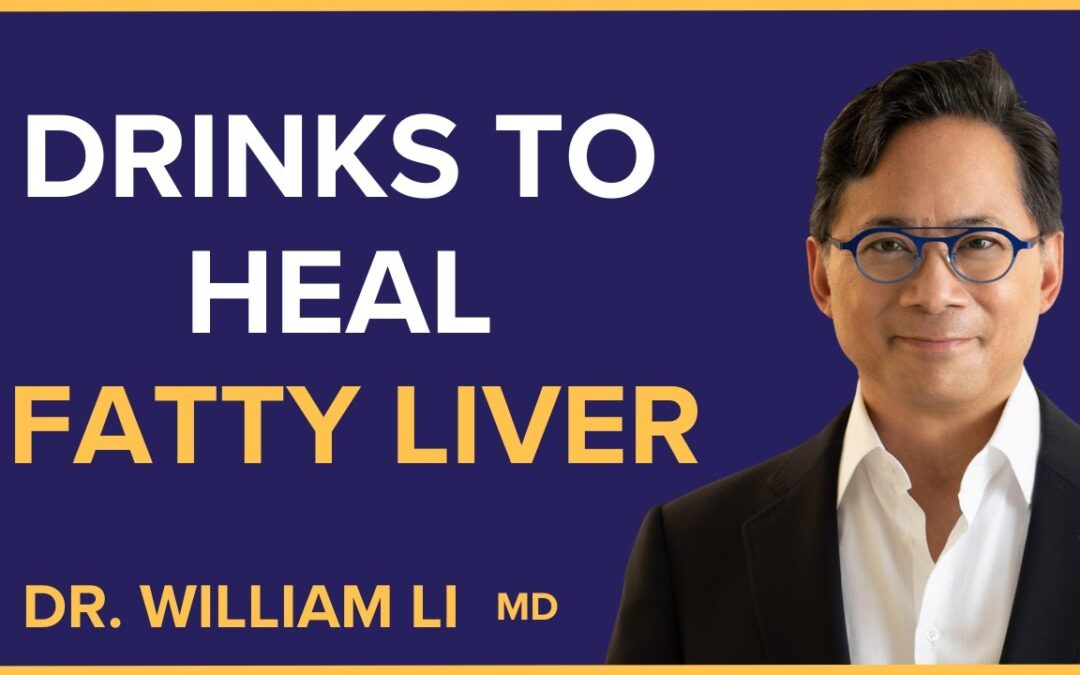
Your liver is a powerhouse organ, working tirelessly to detoxify your body by filtering your blood. It’s also a storage area for fat, and when it gets overloaded, it can lead to serious health issues like fatty liver disease. This condition can disrupt normal liver function and even impact your overall health. Fortunately, there are powerful drinks for liver health that help your liver shed excess fat and support your body’s natural fat-burning processes.
Key Takeaways
- Green Tea: Rich in EGCG, it activates brown fat to burn more calories and supports liver health.
- Oolong Tea: Aids in fat metabolism and liver function.
- Coffee: Contains chlorogenic acid that boosts brown fat activity and can increase the body’s fat-burning capacity.
- Tomato Juice: Lycopene in tomatoes helps reduce visceral fat and supports liver function.
- Watermelon Juice: Contains lycopene and citrulline, promoting fat metabolism and supporting blood vessel health.
- Water: Essential for hydration, it can also boost metabolism and help manage appetite.
Understanding Liver Fat And Body Fat
When you eat, your body takes the energy from food and stores it. Some is used immediately, some is stored in your muscles, and anything extra is converted into body fat. This fat can be stored under your skin (subcutaneous fat) or around your organs (visceral fat). While a little bit of fat is normal and serves as an energy reserve, too much can be dangerous. Your fat cells, called adipocytes, can stretch up to three times their original size to accommodate this extra fat. When you’re active or not eating, your body burns this stored fat for fuel.
However, overeating can lead to an overload. Think of your body like a sink: food is the water coming in from the faucet, and burning calories is the drain. If you overeat consistently, the ‘faucet’ is on too high, and the ‘drain’ can’t keep up. This excess energy spills over. Initially, your fat cells swell. If they reach their limit, the excess fat spills into your bloodstream. Your liver, acting as a detoxification center, absorbs this overflow. But if the liver becomes overwhelmed with fat, it can’t function properly. This is known as fatty liver disease.
The Dangers of Fatty Liver Disease
Fatty liver disease, especially the non-alcoholic type caused by overconsumption, is becoming increasingly common, even in younger people. When your liver is packed with fat, its ability to detoxify your body is compromised. This can lead to a cascade of health problems. The liver may start leaking fat into your bloodstream, and its ability to produce essential proteins, like those needed for blood clotting, can be impaired. This can make you more vulnerable to bleeding. In severe cases, fatty liver can progress to cirrhosis, which is scarring of the liver, leading to liver shutdown. Symptoms can include fatigue, discomfort in the upper right abdomen, itchy skin, fluid buildup in the belly (ascites), swollen legs, and jaundice (yellowing of the skin and eyes). In the most critical stages, a liver transplant may be the only option. The good news is that the liver is a resilient organ and can regenerate if given the chance to heal. By reducing the fat burden, you can help your liver recover.
Five Fat-Fighting Drinks for Liver Health
Here are five drinks that can help your body burn excess fat, thereby unburdening your liver:
1. Green Tea
Green tea is a well-known health beverage, and its fat-burning properties are largely due to a polyphenol called EGCG (epigallocatechin gallate). EGCG activates brown fat, a type of ‘good’ fat that generates heat by burning calories. Think of brown fat like a small space heater in your body, using energy from excess white fat to keep you warm. Studies have shown that drinking green tea can lead to modest weight loss and a reduction in visceral fat, which is the harmful fat around your organs. For instance, a study in Iran found that women who drank green tea daily lost weight and reduced their waist circumference. Another study involving individuals with type 2 diabetes showed that drinking green tea over two months led to weight loss and a significant decrease in waist size.
- Pro Tip: Drink green tea plain, without sugar or milk. Sugar adds calories, and dairy fat can bind to the beneficial compounds in tea, reducing their absorption.
Other beneficial teas include Matcha, which is a powdered whole green tea leaf providing even more nutrients, Oolong tea, and Pu-erh tea, a fermented black tea with probiotic qualities. Even regular black tea like English Breakfast can offer benefits.
2. Coffee
Coffee, particularly due to its chlorogenic acid content, is another powerful ally in the fight against excess body fat. Like green tea, coffee activates brown fat thermogenesis, essentially turning up your body’s internal furnace. This process burns calories and draws fuel from your stored body fat. Furthermore, coffee can stimulate the production of more brown fat, giving your body more ‘burners’ to work with. Clinical studies support this; one study involving over 500 people found that coffee drinkers had less body fat. Even decaffeinated coffee showed benefits, highlighting the role of chlorogenic acid. A Harvard study found that participants who drank four cups of coffee daily for six months lost body fat, while a placebo group actually gained fat.
- How it Works: Chlorogenic acid in coffee activates brown fat, which then burns calories from white fat. It may also help your body create more brown fat.
3. Tomato Juice
Tomatoes are rich in lycopene, a powerful antioxidant that gives them their red color. Lycopene has been shown to activate brown fat, similar to green tea and coffee. Studies suggest that incorporating tomatoes or tomato juice into your diet can help reduce visceral fat and support overall metabolic health. Research from China showed that women who drank tomato juice daily experienced weight loss, reduced waist circumference, and decreased levels of inflammatory markers associated with body fat. While commercial tomato juice can be convenient, it’s best to check labels for added sugars or preservatives. Making your own from fresh tomatoes is an excellent option.
- Beyond Juice: Tomato sauce, made from pureed tomatoes, can also be a good way to consume lycopene.
4. Watermelon Juice
Watermelon, like tomatoes, contains lycopene. This refreshing juice is not only hydrating but also packed with beneficial compounds. Studies have found that drinking homemade watermelon juice can significantly increase lycopene levels in the blood. Beyond lycopene, watermelon contains citrulline, which the body converts into nitric oxide. Nitric oxide is vital for dilating blood vessels, which can help lower blood pressure and maintain healthy circulation. It also plays a role in regenerating blood vessels. For those heading out into the sun, watermelon juice offers antioxidant protection against UV damage.
- Make it Fresh: Opt for homemade watermelon juice to avoid added sugars and preservatives often found in store-bought versions. Ensure your juicer or blender is not made of plastic if possible, to avoid microplastic contamination.
5. Water
Often overlooked, plain water is a cornerstone of health and plays a significant role in fat loss and liver health. Drinking water, especially before meals, can help you feel fuller, thus reducing overall calorie intake. More surprisingly, drinking water, particularly cool water, can trigger thermogenesis. Your body expends energy to warm the ingested water to body temperature, leading to a slight increase in metabolism. Studies suggest that drinking a couple of cups of water can boost metabolism by up to 30%. Over a year, consistently drinking enough water could lead to burning thousands of extra calories, equivalent to several pounds of fat. For individuals with fatty liver, staying hydrated is crucial for detoxification. Dehydration can concentrate toxins, putting more strain on an already compromised liver. It’s also important to be mindful of the source of your water. Plastic water bottles can leach microplastics into the water, which have been linked to various health concerns, including increased risk of heart attack and stroke. Opt for glass bottles or containers whenever possible.
- Hydration Needs Vary: There’s no one-size-fits-all rule for water intake. Listen to your body’s thirst signals. Factors like body size, activity level, and climate influence how much water you need.
Taking Control Of Your Liver Health
While these beverages can be powerful tools in your journey to reduce body fat and support liver health, it’s important to remember that fatty liver disease is a serious condition. These lifestyle changes, including incorporating these fat-fighting drinks, can significantly help, but they should complement, not replace, professional medical advice. If you suspect you have fatty liver disease, working closely with your doctor is essential for proper diagnosis and management. They can guide you on the best course of action, which may include further specialist care, to ensure the best possible outcome for your liver health.




